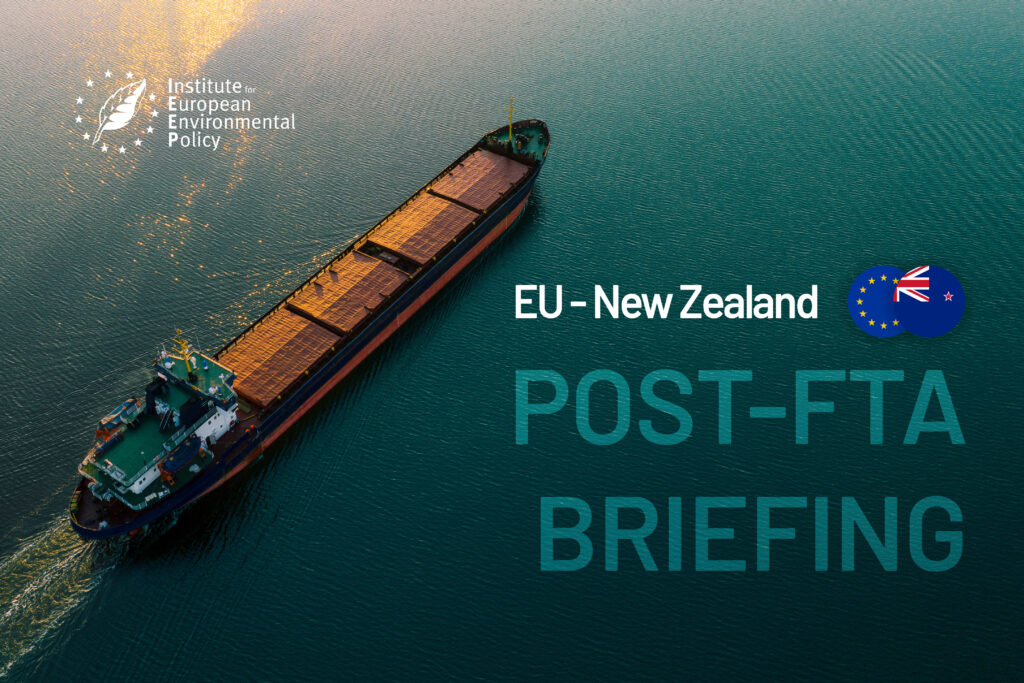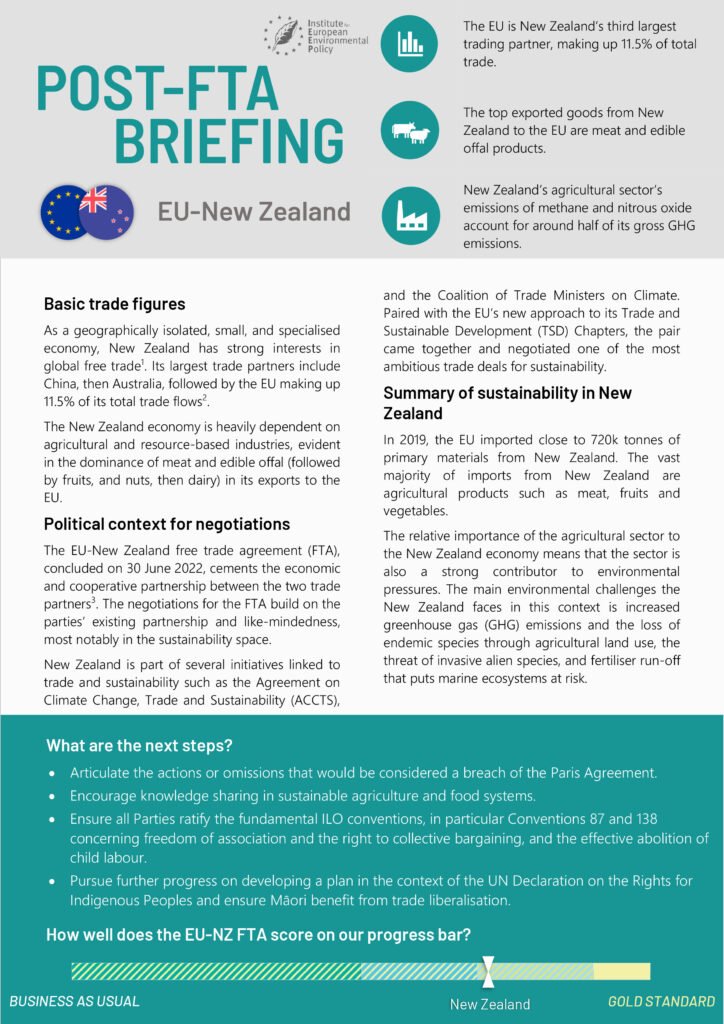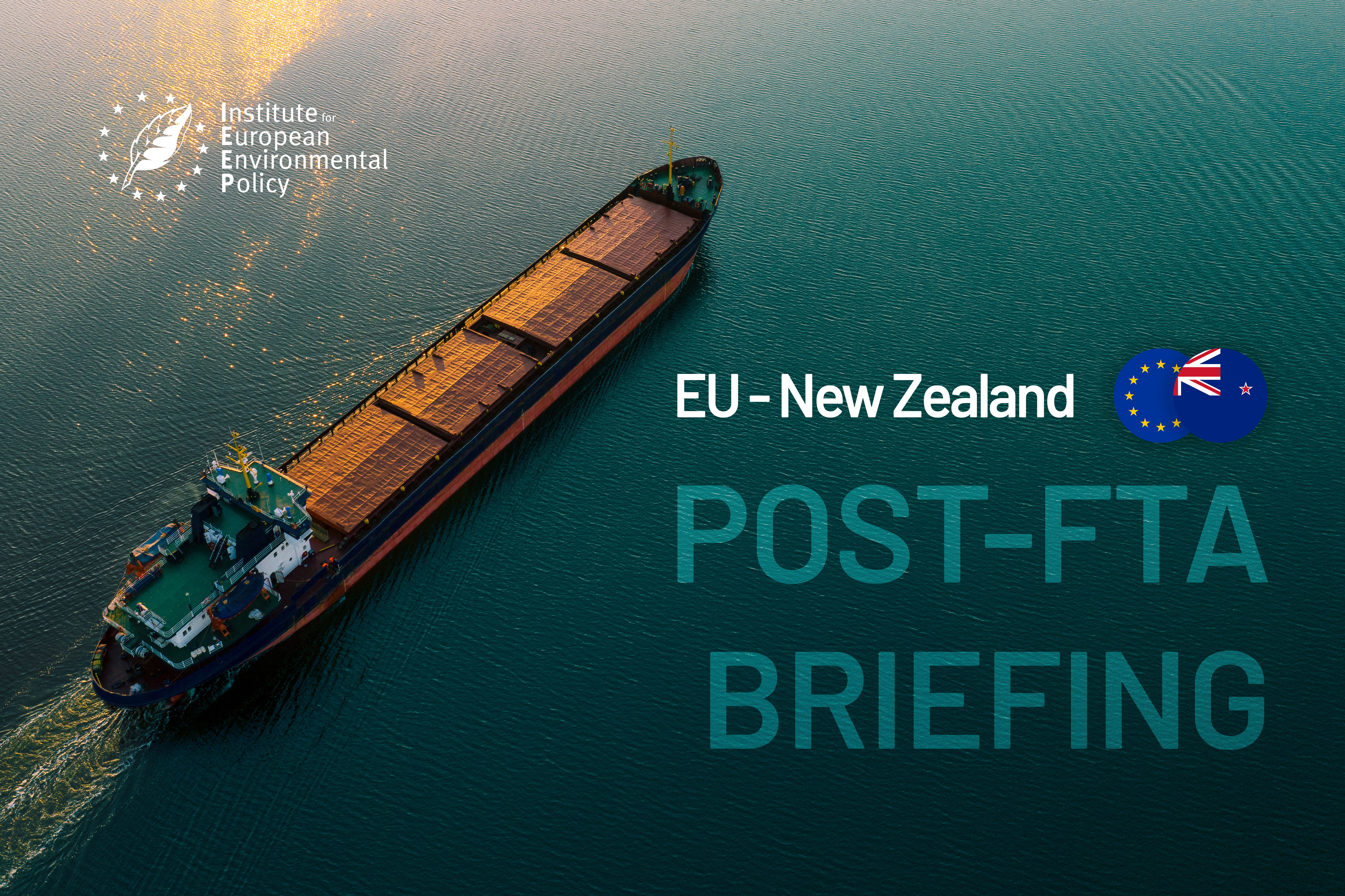AUTHORS: Eline Blot, Susanna Li
This briefing assesses the environmental credentials of the EU-New Zealand trade agreement as part of an IEEP series aimed at monitoring upcoming free trade agreements (FTAs) that are being negotiated and concluded.

On the heels of the European Commission’s communication on the new approach to TSD Chapters in June 2022, the Commission announced the conclusion of negotiations with New Zealand on their new bilateral trade agreement. Hailed as the most progressive EU FTA to date, this briefing assesses the new provisions, articles and thematic chapters introduced in the EU-New Zealand FTA and speculates whether the new trade agreement is as sustainable as it is portrayed.

This briefing is part of an IEEP series monitoring upcoming free trade agreements (FTAs) that are being negotiated and concluded. More briefings assessing the environmental sustainability of future FTAs will be available shortly.
The EU-New Zealand FTA, concluded on 30 June 2022, cements the economic and cooperative partnership between the two trade partners. The negotiations for the FTA build on the parties’ existing partnership and like-mindedness, most notably in the sustainability space.
New Zealand is part of several initiatives linked to trade and sustainability such as the Agreement on Climate Change, Trade and Sustainability (ACCTS), and the Coalition of Trade Ministers on Climate. Paired with the EU’s new approach to its Trade and Sustainable Development (TSD) Chapters, the pair came together and negotiated one of the most ambitious trade deals for sustainability.
The New Zealand economy is heavily dependent on agricultural and resource-based industries and has a relatively low population density. This agricultural slant is obvious in New Zealand’s exports to the EU, which are dominated by meat and edible offal, followed by fruits and nuts, then dairy.
The relative importance of the agricultural sector to the New Zealand economy means that the sector is also a strong contributor to environmental pressures. The main environmental challenges the New Zealand faces in this context is the loss of endemic species through agricultural land use, the threat of invasive alien species, and fertiliser run-off that puts marine ecosystems at risk. The agricultural sector is also a significant emitter of greenhouse gas emissions, and a higher demand for trade in agricultural goods could increase both agriculture- and transport-related emissions.
The EU-New Zealand FTA performs strongly in the assessment of its environmental credentials. It is the first EU trade agreement to add the Parties’ compliance to the Paris Agreement and the ILO conventions to the general dispute settlement mechanism, meaning that non-compliance could result in sanctions. Moreover, the contents of the TSD Chapter have significantly improved to be more comprehensive, especially compared to older FTAs.
Yet, cooperative activities in the context of environmental sustainability remain the primary tool to foster sustainable practices, rather than the development of specific targets, actions and timelines. Furthermore, it remains unclear to what extent the new provisions surrounding the Paris Agreement will be enforceable, i.e., what actions would be regarded as a breach of the Paris Agreement?
Recommendations
- Articulate what actions or omissions would be considered a material breach to objectives of the Paris Agreement.
- Encourage discussion and knowledge sharing particularly in the area of sustainable agriculture and food systems.
- Follow up on the activities of relevant working groups and committees on the design, implementation and evaluation of sustainability standards, laws and regulations. The Domestic Advisory Groups should be notified on the development and status of these activities.
- Ensure all Parties ratify the fundamental ILO conventions, in particular Conventions 87 and 138 concerning freedom of association and the right to collective bargaining, and the effective abolition of child labour.
- Pursue further progress on the development of a Declaration plan in the context of the UN Declaration on the Rights for Indigenous People and ensuring Māori benefit from trade liberalisation without putting their practices at risk.
- Continue cooperating bilaterally and at international fora on sustainability issues such as the WTO, the UNFCCC, and the GACERE.


